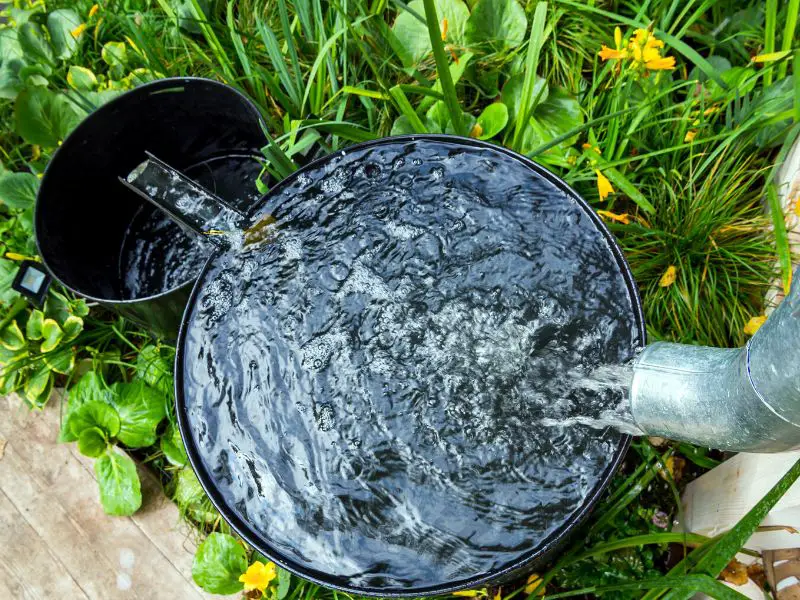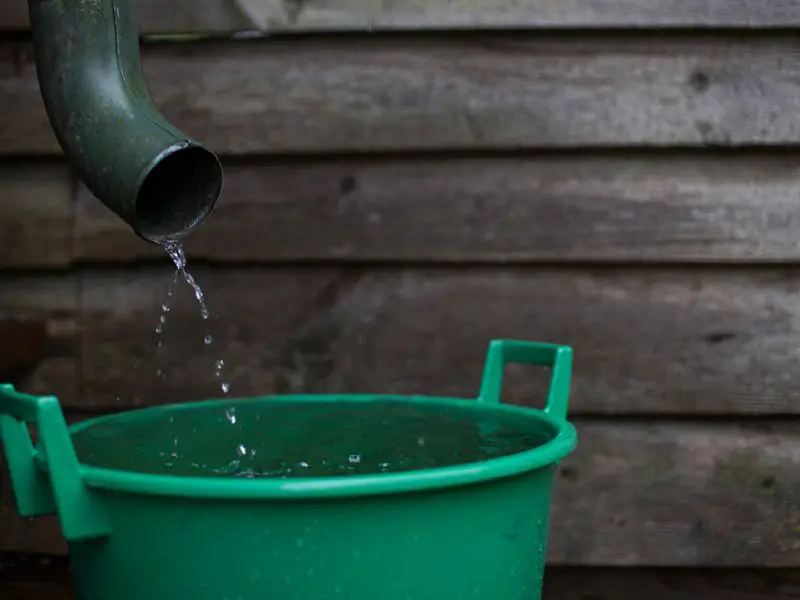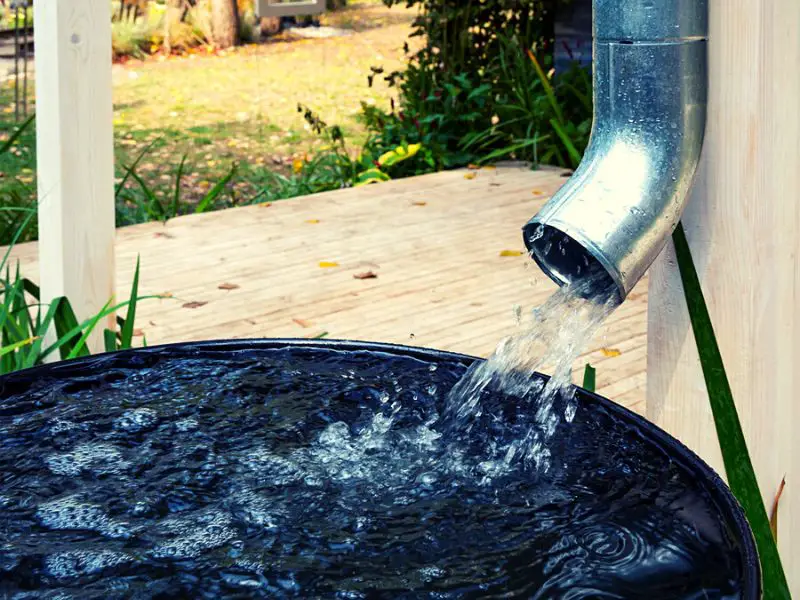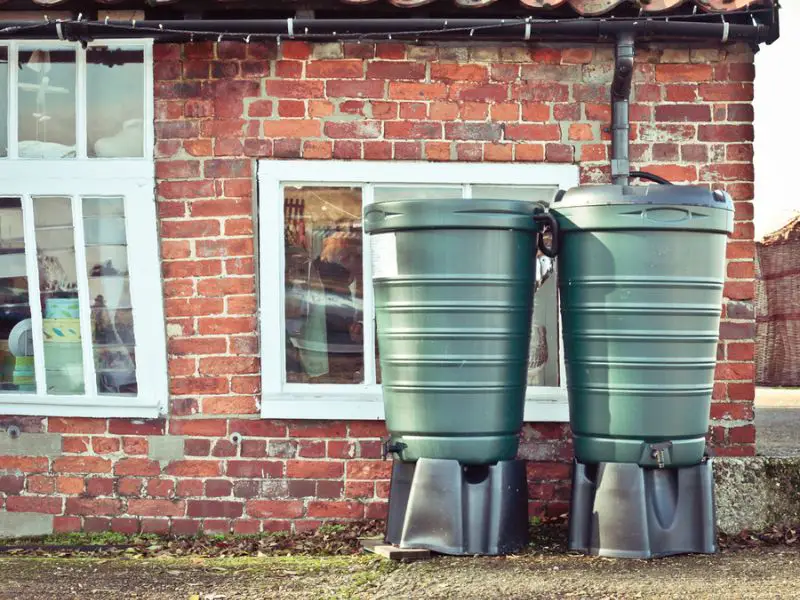Rainwater is a valuable resource, and many municipalities require residents with roof-mounted rain barrels to include overflow pipes on their downspouts, to prevent flooding from occurring during heavy rains. If you live in an area with rain, collecting rainwater for your home and garden can be an excellent way to conserve water and save money on your water bill.
Is It Illegal to Collect Rainwater?
In almost every state in the US, the answer is no. Colorado and Utah are the only two lower 48 states in the U.S. with strict laws for people collecting and using the rain that falls on their property. But in most states, collecting rainwater is either not regulated or is even encouraged by the state government.

Will Rainwater Harvesting Soon Become Illegal?
Following the current trend, water collection is unlikely to be illegal. More and more states are adopting rainwater collection and leveraging it on public and government structures. Multiple states have enacted legislation to incentivize rainwater collection, and this trend appears to be spreading. There are also some Organizations such as the American Rainwater Catchment Systems Association (ARCSA) constantly working with some government institutions to assist rain harvesters around the country.
Why Are There Regulations on Rainwater Harvesting?
Outdated legislation and codes are drawn mainly from an old way of thinking. In the case of Colorado, a 120-year-old statute shows that rainwater collection is prohibited since it may run downstream into someone else’s water source, which would constitute taking from them if rainfall was collected.

Should You Collect Rainwater If You Can?
If you have doubts about whether collecting rainwater is legal and the rules in your area, you might also want to ask the next question. Does it make sense to store rainwater? But simply, it depends on the rules in your area and the water supply you already have.
Many people are becoming rainwater collectors to aid the environment. While it is a great goal, collecting 110 gallons might cause more hassle than it is worth in some regions. Others allow you to gather up to 2,500 gallons of rainwater for personal use.
What Are Water Rights?
According to the National Conference of State Legislatures, “rainwater harvesting” can impact environmental standards, public health and safety, and water rights.
Water rights are a sort of interest that can be added to a property’s ownership if:
It is situated near a body of water. This indicates that the landowner has the right to use that body of water and any precipitation in its vicinity. Some states dictate that all rain belongs to current water-rights owners and that rainwater must drain by its legal entitlement.
A study in the journal Rainwater Collection, Water Law, and Climate Change: A Flood of Problems Waiting to Happen looks deeper into water rights. It says that any way to collect rainwater, like gutters on your roof or other rainwater drain controls, “violates the legal water rights of someone “downstream.” This may not seem like a huge deal, but this kind of law can be important in places with frequent droughts or other water problems.

What are the Consequences of Collecting Rainwater?
In 2012, a guy in Oregon collected 13 million gallons of water via rainwater harvesting and constructed three reservoirs on his land. You read this right, he actually created three different bodies of water from gathering rainwater.
While most states tolerate and even promote collecting rainwater, several states have special restrictions and regulations regarding the practice. Here are some states with restrictions or water rights requirements to be able to harvest rainwater.
- Utah: Rainwater harvesting is legal as long as it’s on your land, even if it’s a lease. You also have to register with the Utah Division of Water Rights.
- Kansas: In Kansas, it is not illegal to collect rainwater, but you may need permission if you want to use the water for anything other than household reasons.
- Colorado: Residents of Colorado can legally store up to 150 gallons of rainwater without needing a water rights permit, provided that the system conforms with the regulations set out by the Colorado Water Conservation Board.
- Oregon: While collecting rainwater for later use is legal in Oregon, some rules regulate the practice, one of which requires only rooftop collection.
- Nevada: There are restrictions on rainwater for wildlife only. But SB74 made a few changes, like letting people use small-scale rainwater systems without having to prove the “use it or lose it” principle and giving people more ways to use the water.
Is It Okay to Drink Rainwater?
While rain is naturally clean, it can contain specific contaminants such as pesticides and fertilizers, so drinking is not recommended. Pollutants, dangerous bacteria, and parasites can also pollute rainwater, making its consumption unhealthy. But there are ways you can sterilize the rainwater, such as boiling and filtering for safer human consumption.
Some Benefits of Collecting Rainwater
Like most people, you’ve heard that collecting rainwater benefits the environment, but you can’t explain why.
Listed below are a few bullet points followed by key facts regarding why collecting rainwater is essential for sustaining the local environment and the global water cycle.
Harvesting rainwater is an excellent way to:
- Protect your community’s watershed
- Save you money on your water bill
- Prevent stormwater runoff from polluting the local waterways
- Protect groundwater supplies from contamination and overuse
- Help maintain healthy plants and wildlife
- Consume less water to grow plants
- Maintain a lush and healthy garden (which, in turn, enriches the habitat and helps to regulate local temperatures and precipitation)
- Reduce the effects of dry spells
- Mitigate the effects of climate change
- Promote the recycling of materials available around you
- Reduce your carbon footprint

Author’s Note
Collecting rainwater is a common practice in many countries worldwide. Even though some states have banned this practice, others encourage it, as they see rainwater harvesting benefits. Some countries even provide tax incentives to homeowners who choose to collect rainwater.
Water is essential to life, and droughts are common in many countries. This is why it’s necessary to collect rainwater to help the environment. Water is a valuable resource that shouldn’t be wasted, especially when water shortages are common.
If you live in an area with frequent rainfall, you can easily collect water around the house and yard. Find out if collecting rainwater is illegal in your area, and determine the legal requirements if you want to build a rainwater collection system at your home.
Eco-Advices That Will Inspire You: Biodiversity, Ways to Save Electricity, Major Greenhouse Gases, Great Pacific Garbage Patch


1 thought on “Rainwater: Can It Be Collected Legally?”